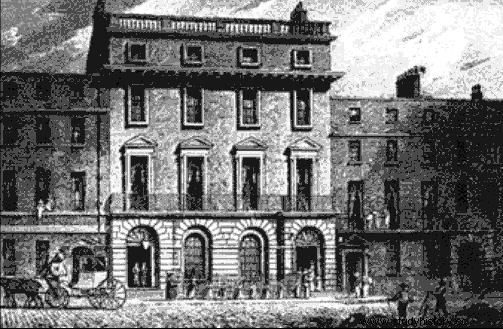London, October 26, 1863. In Long Acre, near Covent Garden, there is situated a tavern called Freemason's Tavern , in which a group of men gather to have a few pints. This fact by itself would not be significant; but if the consequence of that meeting was the birth of a show that in 2015 moves billions of euros and also excites billions of people, the content of that meeting becomes more interesting. In 1863, in London and throughout England there were teams that practiced football and faced each other; but there was no common regulation on the rules of this new sport. It was in that year that Ebenezer Morley he thought it was necessary to provide football with a set of unified rules like those that already existed in cricket.

Freemasons Tavern (1863)
Morley convened a group of representatives from a dozen London teams (both managers and players). The attendees decided to create an association, known as FA (Fooball Association ), which established a set of common rules for all players and teams practicing football in England. Morley, appointed secretary of the newly created FA, drafted a regulation that was approved by the association and unified for the first time the rules that from that moment would apply to all football matches played in England. The first match to be held using the rules drafted by Morley took place on December 19, 1863 at Limes Field between Barnes and Richmond, and ended in a scoreless draw.
Little by little, football became popular, first in the British Isles, and then in the rest of the world, always under the rules approved by the FA as a result of the meeting held at Freemason's Tavern . Often this expansion of football in other countries was sponsored by English residents in those countries; in the case of Spain, they were workers in the Huelva mines of Río Tinto. The influence of English football on that of other countries was not limited to the FA rules, but also to the uniformity of some teams; This is the case of the Southampton and Athletic Bilbao jerseys, and as a consequence of that the Atlético de Madrid jersey... but that's another story.
Collaboration of Curiosities of History
